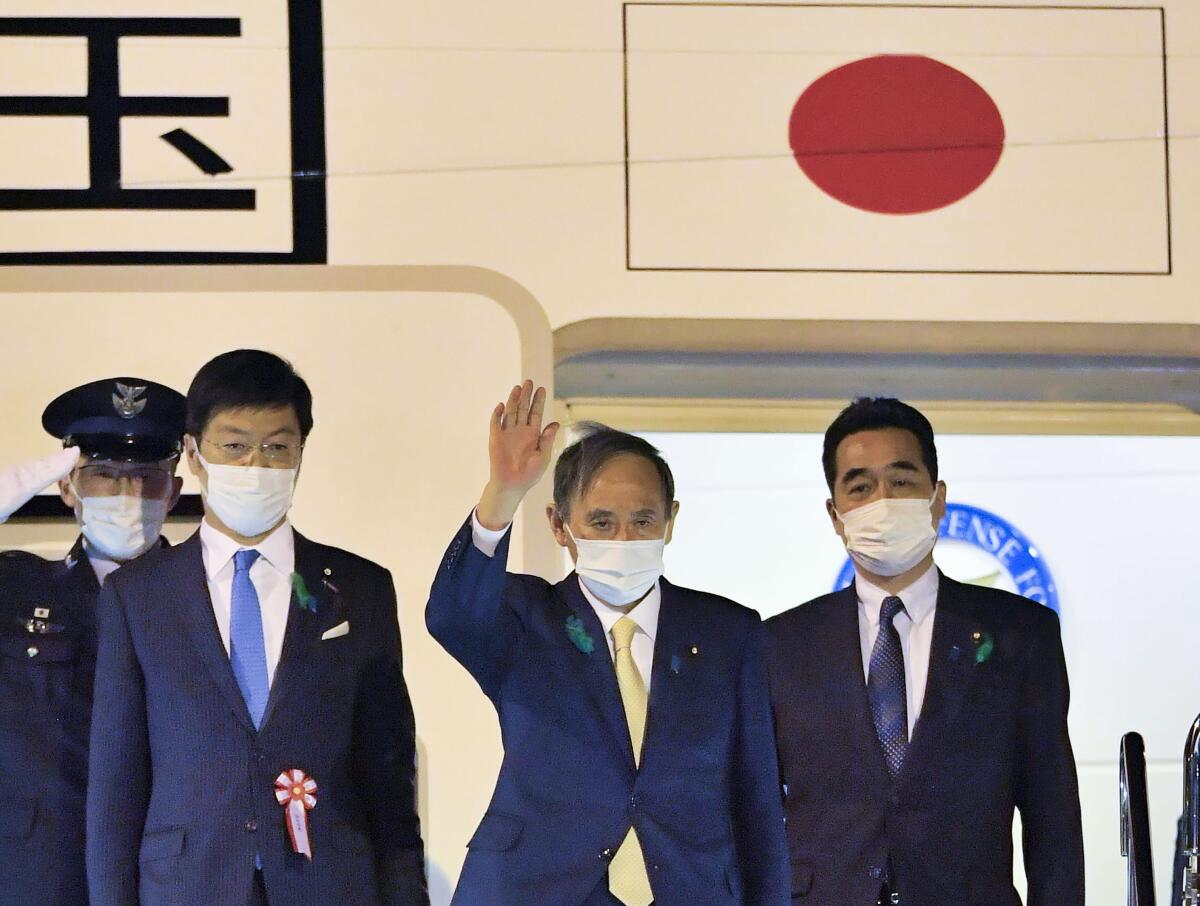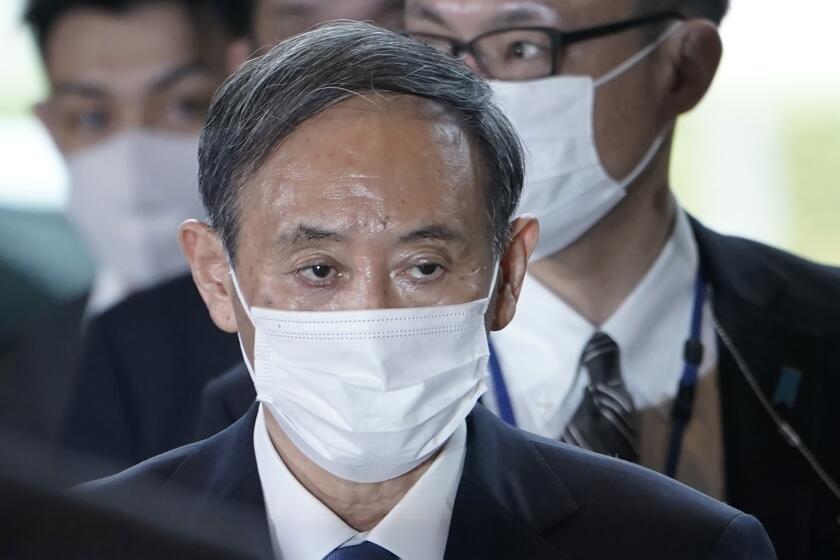Japan’s Prime Minister Suga comes to U.S. for China-focused talks with Biden

- Share via
WASHINGTON — Japanese Prime Minister Yoshihide Suga arrived in Washington on Thursday for talks with President Biden meant to show the strength of the two nations’ security alliance at a time when both are concerned with China’s growing economic and military clout.
Friday’s talks will be Biden’s first face-to-face meeting with a foreign leader since he took office, and they follow four years of uncertainty for the Japan-U.S. alliance under the Trump’s administration.
Japan’s Foreign Ministry said Suga hopes to reaffirm the alliance’s “strong bond” and discuss a multinational effort to defend democratic values and counter China’s growing global influence and disputed territorial claims.
“I hope to develop a relationship of trust with President Biden and further strengthen the Japan-U.S. alliance bound by the universal values of freedom, democracy, human rights and rule of law,” Suga told reporters Thursday before heading to Tokyo’s Haneda International Airport.
Suga said he and Biden will “compare and adjust our policies, and we will demonstrate to the rest of the world the leadership of Japan and the United States toward achieving a free and open Indo-Pacific region.”
Japanese officials said Biden and Suga are expected to discuss how to manage the peace and stability of regional seas, including the Taiwan Strait, where tensions are rising. The two leaders are also expected to discuss the human rights situation in Hong Kong and China’s northwestern Xinjiang region.
China has sharply reduced the number of directly elected seats in Hong Kong’s legislature in a setback for democracy in the semi-autonomous city.
Japan has taken a milder approach to reports of Chinese human rights violations and has not joined the United States and European nations in imposing sanctions. Gen Nakatani, a ruling party lawmaker and former defense minister, is leading a nonpartisan parliamentary group calling for Suga’s government to take tougher steps, including sanctions, to be in line with Western democracies, but a decision has not been made.
Japan considers China’s growing military activity in the region and its broad territorial claims to be a security threat. Japan is locked in dispute with China over Beijing’s claim to the Japanese-controlled Senkaku Islands, called Diaoyu in China, in the East China Sea.
Elsewhere, Tokyo has watched with concern as China has built military installations on disputed territory it claims in the South China Sea.
The U.S., meanwhile, has butted heads with China over numerous issues, including the COVID-19 pandemic, human rights, Chinese policy in Hong Kong, Xinjiang and Tibet and trade. To erode China’s claims in the South China Sea, U.S. ships regularly conduct “freedom of navigation” operations, sailing into international waters that China is trying to claim as its own.
China denies it is expansionist and says it is defending its territorial rights. It says that the largest threat to regional peace and stability is the U.S.
Before he got Japan’s top government job officially, Yoshihide Suga was known as a “shadow” prime minister and right-hand man to his long-serving predecessor.
Also on the agenda for the talks between Biden and Suga are the ongoing fight against the pandemic, COVID-19 vaccine cooperation to support developing countries, establishing less China-reliant supply chains, and climate change, Japanese officials said.
Suga, who has set a goal of achieving a carbon-neutral society by 2050, said he hoped to closely cooperate with Biden to jointly lead international efforts to tackle the issue when the U.S. leader hosts a virtual climate change summit a week after their meeting.
More to Read
Get the L.A. Times Politics newsletter
Deeply reported insights into legislation, politics and policy from Sacramento, Washington and beyond. In your inbox twice per week.
You may occasionally receive promotional content from the Los Angeles Times.












